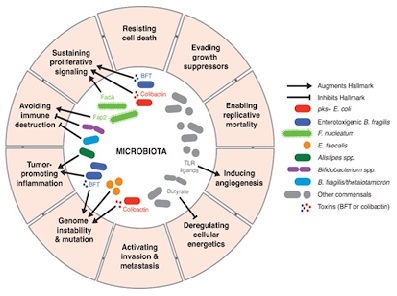Genomic approaches to identify novel endogenous and exogenous genetic elements associated with human cancer
Researcher:Sanket Desai, Ph.D-SRF
Collaborators:
Dr. Murali Bashyam, Centre for DNA Fingerprinting and Diagnostics (CDFD), Hyderabad
Cancer is a complex disease characterized by somatic alterations (genetic and epigenetic), pathogenic infections, that are associated with more than 18% of the global cancer incidences. Pathogens, including viruses and bacteria are known to be associated with cancer by inducing chronic inflammation and interfering with host cellular mechanism. The discovery of cancer associated pathogens in cancer samples has been revolutionized with the advent of next generation sequencing (NGS) technology. For systematic detection and quantification of cancer associated pathogens in NGS samples, we have developed Cancer Pathogen Detector (CPD) -- a novel computational tool to detect the presence of 1070 pathogenic strains with high specificity and sensitivity using whole exome, whole genome, and transcriptome data. The identification of novel infectious agents will advance the understanding of the role of pathogens in disease progression and brings opportunities to prevent associated cancers by immunization or other public health measures.

Figure: Pathogen-derived signals modulate numerous hallmarks of cancer through diverse mechanisms.
Knowledge defining how the microbiota modulates host physiology and disease pathogenesis, particularly in the context of cancer, will provide a framework for the holobiont concept of cancer development and enable the identification of novel microbial targets for preventative and therapeutic strategies.Fulbright LE, Ellermann M, Arthur JC (2017)